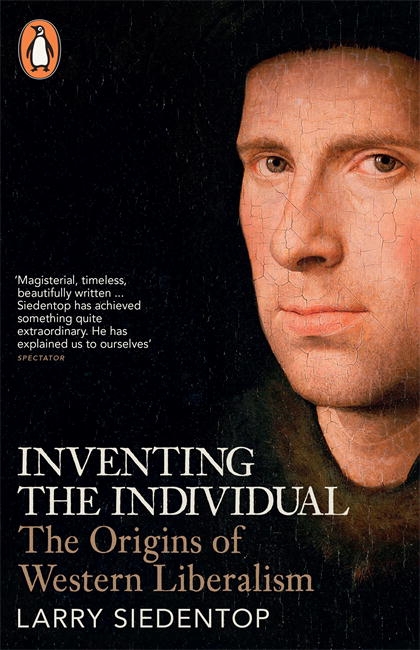Disagreeing with a Judgemental World
 The touchstone of contemporary apologetics is not rationality (“Is belief in God logical?”) but ethics (“Is belief in God morally wrong?”)
The touchstone of contemporary apologetics is not rationality (“Is belief in God logical?”) but ethics (“Is belief in God morally wrong?”)
Often, a religious person is portrayed as a caricature: It is supposed that belief in God involves submission to absolutist and outdated moral stances. This necessarily involves the believer repressing both their naturally inquisitive mind and their naturally tender conscience. It is concluded that the religious believer has therefore embraced a sociopathy that has some good but a lot of bad and is ultimately reprehensible.
It is an understandable picture. Much has been done in the name of God that is reprehensible. Some fundamentalist frameworks do lead to the repression of intellect or conscience or both. This is the case, however, for tyrants of both religious and non-religious persuasions. It’s enough to make you sceptical about the natural goodness of humanity!
But the caricature remains. It is simply presumed. The other day a young Christian I know was accosted out of the blue with the assertion, “You hate me because I’m gay and you’re a Christian.” It’s not just a sexuality thing. Replace the word “gay” with some other descriptor (e.g. “muslim”, “atheist”, “scientist”, “person who likes to have fun”) and the dynamic remains. It is how young people of faith are treated in the prevailing popular mood.
Ironically, of course, those who assert the caricature are actually reflecting it. It’s a gavel-banging declaration: “I judge that you are judging me and so I condemn you for it.” There is no enquiry in this statement, no generous observation or gracious listening. The caricature is projected onto the “other” irrespective of whether it fits or not. The particular dignity, principles, thoughts and feelings of that person are irrelevant: they are guilty by association with an abstraction!
We need to lead our young people into understanding this dynamic and responding in an opposite spirit, one that truly demonstrates gentleness and grace without conforming to the pressures and assumptions of a judgemental world.
The real danger is that we Christians come to agree with the caricature ourselves. We can come to accept the judgement that “we” (for some definition of us religious folk) are, by that very fact, dangerously judgemental. And then our judgemental reflection, our projection, is placed on God himself. Our wrestle with the Bible and with godly principles of Christian living collapses into a capitulation: “What God does and says is judgemental and so I judge him worthy of condemnation.”
In some ways this is no surprise. It is not for no reason that the the biblical account of humanity’s fall begins with a questioning of God’s character. “Did God really say? God knows that you would become like him.”
We capitulate to the caricature when we agree with its assertion. “You’re right, the Bible is clearly outdated and doesn’t speak the truth as we know it.” When we do this we are simply making God in our own image. The end game of that is tyranny and philosophical anarchy: There is no higher authority or principle to appeal to; we have a cacophony of individuals asserting that what they say is true is actually what is true.
We capitulate to the caricature when we reinforce the assertion by combatting it on its own terms. “You’re the one who is wrong, the Bible condemns you! You must submit or be damned!” By this we become part of the tyranny, just another one of the voices claiming that their truth wins.
We can only avoid capitulating by turning not to ourselves and some sense of self-righteousness, but by embracing confidence in the trustworthiness of God’s character. That is, by growing in faith.
The way forward is to deliberately choose a posture of trust in God as a good parent. Trust is earned, and can be nurtured. It involves honesty, and takes risks: “Yes, this part of the Bible is difficult to read. But let’s wrestle with it, let’s grapple it. If we stand over it we will not learn anything, but if we begin on the foundation that God is good, how then are we confronted, provoked, taught, and grown by what we read and see?”
We know from our own experience as children of the times when we questioned our parent’s character, particularly when we were being disciplined, or when a family decision takes a difficult path. But we grew to trust. And we came to understand what was going on, and to even respect and agree with what we were taught through those times. Our trust grows, and we are shaped, corrected, and transformed as we go on that journey.
This posture helps us, then, to relate to others. We don’t meet judgementalism with judgementalism. We respond with the truth (“What you say I believe is not actually the case.”) and an invitation to journey (“This where I’ve come from, this is what I’m learning at the moment. Where are you coming from?”). Or, as St. Peter did saith:
…in your hearts revere Christ as Lord. Always be prepared to give an answer to everyone who asks you to give the reason for the hope that you have. But do this with gentleness and respect, keeping a clear conscience, so that those who speak maliciously against your good behaviour in Christ may be ashamed of their slander. (1 Peter 3:15-16)
[Image by Anton Novosolev licensed under CC – BY]





